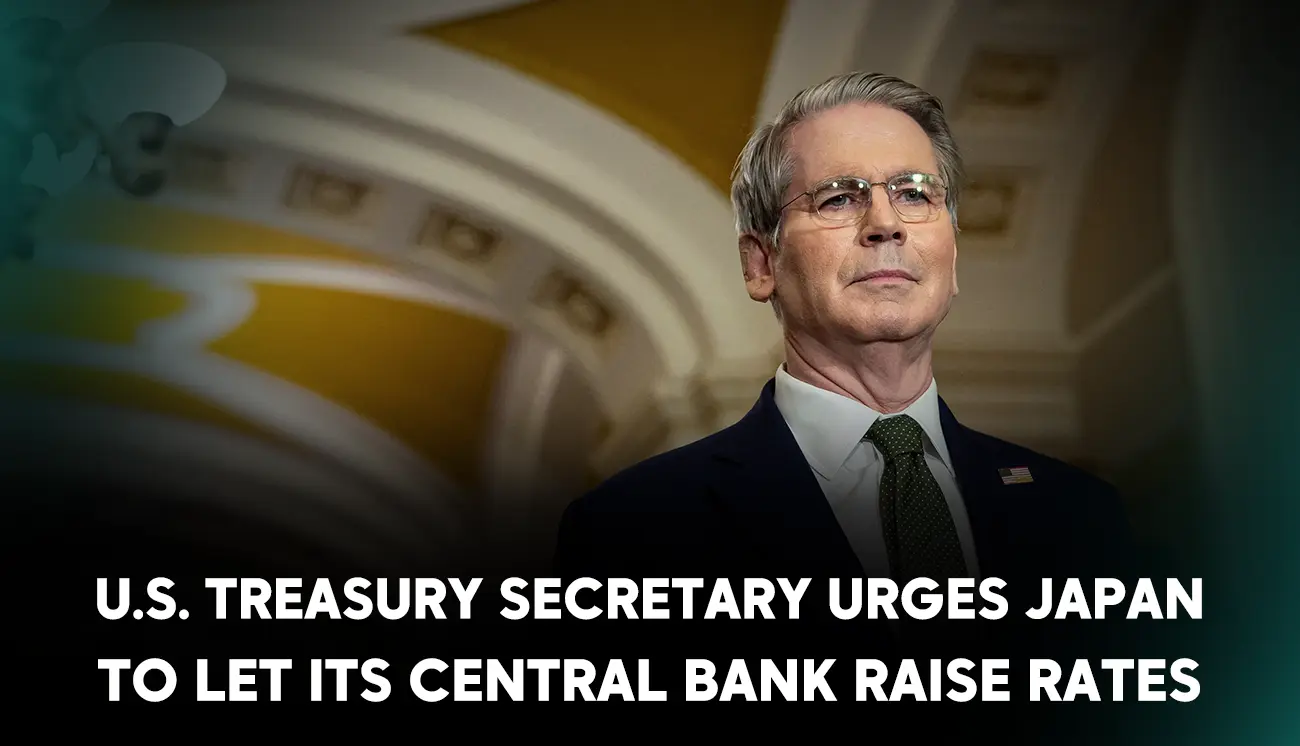U.S. Treasury Secretary Scott Besant on Wednesday urged the Japanese government to give the Bank of Japan more room to raise interest rates, escalating his warning to Tokyo against keeping the yen weak through a prolonged low-borrowing policy. Following his remarks, the U.S. dollar fell 0.3% to 151.59 yen, reviving market expectations that the Bank of Japan could raise rates soon.
In a post on X about his meeting with Japan’s Finance Minister Satsuki Katayama on Monday, Besant expressed admiration for her deep understanding of how Abenomics has evolved from a purely inflation-driven stimulus policy into a program balancing growth with inflation concerns in favor of Japanese citizens. He added that the government’s willingness to allow the Bank of Japan more policy space would be crucial for anchoring inflation expectations and avoiding excessive currency volatility.
The remarks come ahead of the Bank of Japan’s two day policy meeting ending Thursday, where markets broadly expect the central bank to hold rates steady. They also follow Besant’s earlier comment on Tuesday calling for a “sound monetary policy” in Japan to stabilize inflation expectations during his meeting with Katayama.
Commenting on his stance, Mari Iwashita, chief interest-rate strategist at Nomura Securities, said Besant may have felt that without external pressure, the Bank of Japan could continue delaying a rate hike. She noted that another isolated rate increase would have limited impact on the yen, suggesting Besant is pushing for clearer communication on the future path of borrowing costs.
Besant’s comments add pressure on the administration of newly appointed Prime Minister Sanae Takaichi, known for her support of expansionary fiscal and monetary policies. Government spokesman Minoru Kihara declined to comment on Besant’s post, stressing that specific monetary tools fall solely within the Bank of Japan’s jurisdiction.
Japan’s current economic environment differs significantly from the Abenomics era launched by former Prime Minister Shinzo Abe 12 years ago, which focused on fiscal and monetary stimulus to pull the country out of deflation and counter a strong yen that hurt its export driven economy. Today, inflation has surpassed the central bank’s target, and the Bank of Japan has already exited most of Abe’s policies, raising interest rates twice by January. Meanwhile, the weak yen has become a political issue, increasing import costs and adding inflationary pressure.
Shotaro Mori, chief economist at SBI Shinsei Bank, agreed that Besant was right to note that Japan’s economic and price conditions have shifted dramatically since the introduction of Abenomics. He added that the Bank of Japan is well aware of this, which raises the likelihood of a rate hike in December or January.
Overseeing U.S. Japan talks on trade and exchange rates, Besant has repeatedly voiced his preference for a tighter monetary stance in Japan. Some analysts, however, believe Washington is pursuing a weak-dollar policy to support exports a stance that increases pressure on Japan to allow the yen to appreciate against the dollar.
Stay informed about global markets through our previous analyses. and Now, you can also benefit from LDN company services via the LDN Global Markets trading platform.





